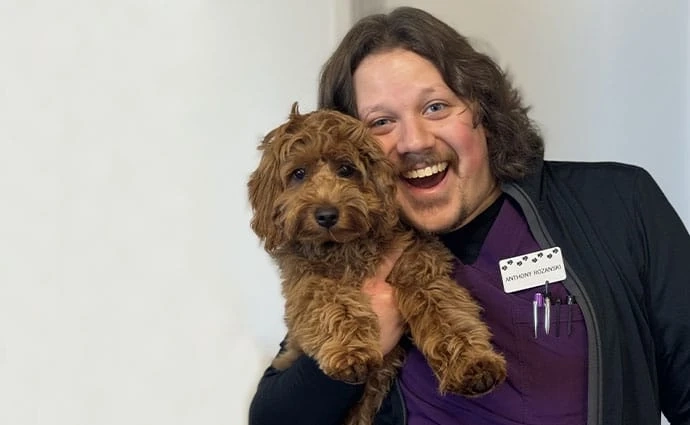In this post, we'll talk about the role of a veterinary hospital, the importance of clean and organized facilities, what to expect from a good veterinary hospital, and other relevant subjects.
Understanding the Role of a Veterinary Hospital
Leesburg Veterinary Hospital is more than just a place for vaccinations. It provides full-service medical care, emergency support, surgical procedures, and wellness checkups. A good one serves as your pet's medical home—where prevention, treatment, and compassion go hand-in-hand for every animal.
- Comprehensive Care: The best hospitals offer everything from exams to advanced diagnostics and surgery under one roof.
Importance of Clean and Organized Facilities
When you walk into a veterinary hospital, cleanliness speaks volumes. A well-organized, hygienic environment reduces infection risks and reflects a clinic's attention to detail. Sterile exam rooms and tidy waiting areas are key to keeping pets and people safe.
- Hygiene is a Priority: Clean tools, sanitized surfaces, and fresh smells help ensure a safe space for healing and recovery.
Friendly and Knowledgeable Staff
Everyone should show kindness and patience, from the receptionist to the vet techs. The staff should make your pet feel at ease and help answer your questions without rushing. Their warmth builds trust and makes your visit smoother.
- People Matter Too: Helpful, polite, and educated staff create a comfortable experience for both pet and owner.
Access to Emergency Vet Services
A good veterinary hospital should provide emergency vet services or refer you quickly. Emergencies can happen at night, during holidays, or suddenly, so knowing your hospital can respond is essential for peace of mind.
- Prepared for Urgency: Look for 24/7 services or clear emergency protocols to protect your pet at any hour.
Skilled and Licensed Veterinarians
The heart of any animal hospital is its veterinarians. They should be licensed, experienced, and up-to-date with the latest medical techniques. A vet who listens and explains clearly adds tremendous value to your pet's health journey.
- Credentials Count: Qualified vets with a caring approach ensure your pet receives knowledgeable, ethical treatment every time.
Detailed Pet Medical Records
Emergency Vet Nokesville VA keeps accurate medical records. Your pet's vaccinations, allergies, prior treatments, and medications must be properly documented and accessible. This continuity ensures that care decisions are based on your pet's history.
- Good Records Save Lives: Well-maintained files help prevent errors and improve long-term care for chronic issues.
Transparent Pricing and Cost Discussions
A trustworthy veterinary hospital will discuss costs upfront. Whether it's a routine visit or emergency surgery, transparency about pricing and treatment options allows you to make informed choices without surprises.
- No Hidden Fees: Clear estimates and honest conversations about care costs help build long-term trust and avoid stress.
Compassionate Emergency Vet Support
Time is critical during emergencies. Emergency vets must be fast, focused, and calm under pressure. Whether your pet is experiencing trauma, poisoning, or sudden illness, these professionals work swiftly to stabilize and support it through crisis moments.
- Calm in Chaos: Emergency vets combine expertise and composure to save lives when minutes matter most.
Well-Equipped Diagnostic Facilities
Advanced diagnostic tools like X-rays, blood tests, and ultrasounds are vital for accurate diagnoses. Such equipment in-house speeds up treatment decisions and minimizes waiting times.
- Faster, Better Care: On-site diagnostics mean quicker answers and prompt medical action when your pet is unwell.
Personalized Treatment Plans
Each pet is different. Veterinarian Bristow VA takes the time to understand your pet's unique needs, health risks, and lifestyle before crafting a treatment plan. Personalized care results in better recovery and long-term wellness.
- Tailored Attention: Your pet's care should reflect its age, breed, medical history, and specific symptoms—not a one-size-fits-all solution.
Open Communication with Pet Parents
You should never be confused about post-surgery instructions or treatment options. A good vet hospital explains everything clearly and welcomes your questions. Communication is key to successful pet care.
- Clarity Brings Confidence: Pet owners feel empowered when they're kept in the loop and understand what's happening.
Proper Follow-Up and Support
The job doesn't end after a procedure. Reliable veterinary hospitals follow up with patients to check on their progress and help with aftercare. These follow-ups ensure complications are caught early, and recovery stays on track.
- Care Beyond the Visit: Follow-ups show commitment to your pet's well-being and build strong, long-term relationships.
Safe and Comfortable Animal Handling
Handling techniques matter, especially for nervous or injured pets. Staff should use gentle, secure methods to reduce stress and keep your pet safe. Fear-free practices can make every visit more positive.
- Stress-Free Visits: A calm and gentle approach helps pets feel safe and builds trust with both the animal and the owner.
Specialization and Advanced Services
Some veterinary hospitals offer specialized care in dermatology, cardiology, or orthopedics. If your pet needs advanced care, having access to in-house specialists saves time and improves outcomes.
- Expertise on Demand: Hospitals with multiple specialties under one roof ensure continuity and precision in treatment.
Educational Support for Pet Owners
A good vet hospital doesn't just treat your pet—it teaches you how to better care for them. Whether dietary advice or behavioral tips, education helps raise a healthier, happier animal.
- Informed Ownership: Vet teams who share their knowledge empower you to detect early signs and prevent illness.
Fear-Free and Pet-Friendly Design
The physical environment matters. Separate cat and dog areas, calming music, and less crowded spaces contribute to a stress-free visit. Good design helps animals feel secure and welcome.
- Comfort in the Clinic: A pet-friendly environment lowers anxiety and encourages better pet cooperation during exams.
Options for Pet Insurance and Financing
Vet bills can be expensive, especially during emergencies. A hospital that accepts pet insurance or financing understands financial realities while prioritizing care.
- Affordability Matters: Flexible payment options ensure no pet goes untreated due to budget constraints.
Emphasis on Preventative Care
Prevention is better than cure. A good veterinary hospital educates pet parents about vaccinations, parasite control, dental health, and nutrition—so problems are caught early or avoided entirely.
- Long-Term Health: Preventative care leads to fewer emergencies, lower costs, and a longer, healthier life for your pet.
Final Thoughts: What Makes It "Good"?
A good veterinary hospital combines medical excellence with genuine compassion. It's where pets are treated like family, staff are warm and skilled, and every service—from emergencies to checkups—is done with care and clarity.
- More Than Medicine: The best hospitals blend expertise, transparency, and heart into every moment of care.


